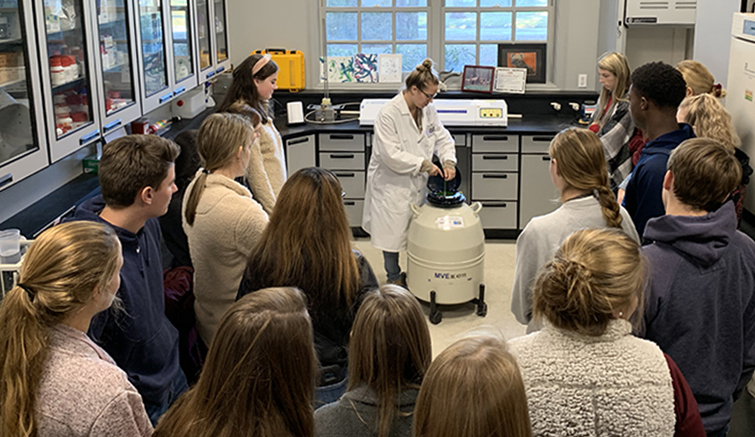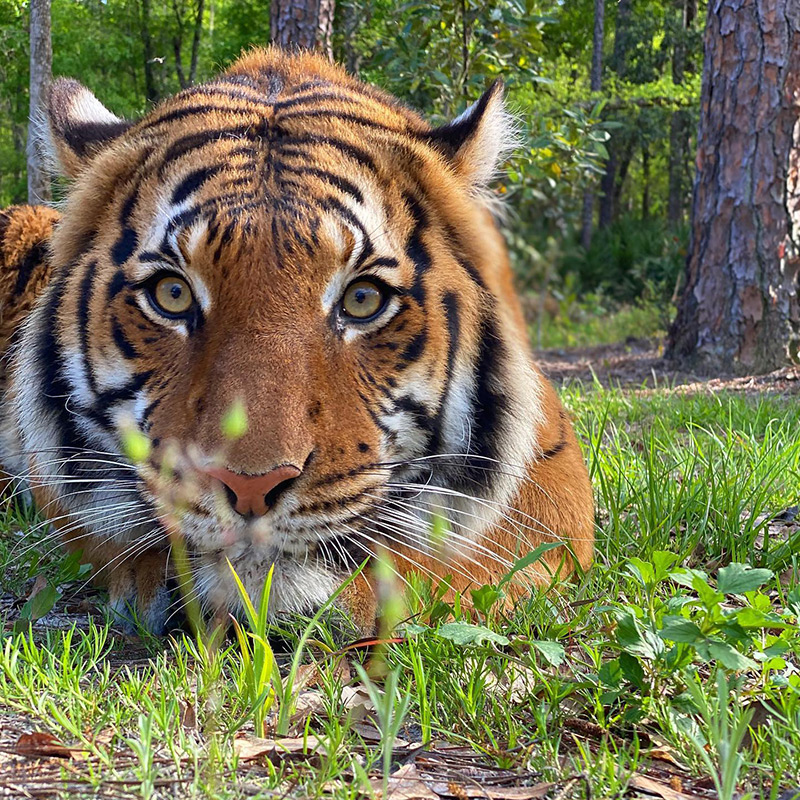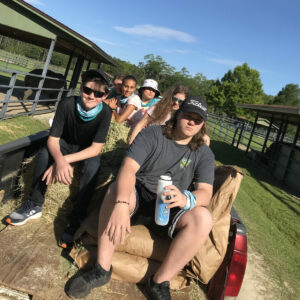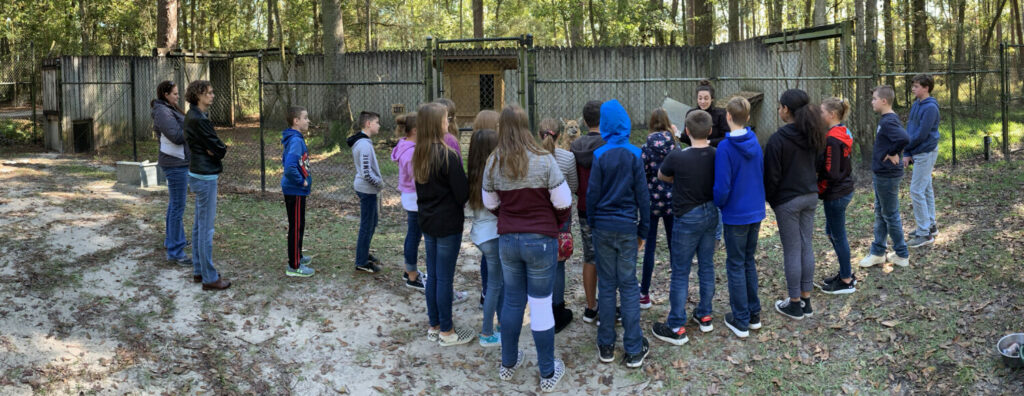White Oak has a long-standing history of educational training geared towards early career professionals through conservation internships and career specialty programs. When White Oak welcomed new owners, Mark and Kimbra Walter, we also welcomed the arrival of a new era where educational programs became a central pillar of the organization’s mission. From understanding the basics of animal behavior to the challenges that climate change poses for endangered wildlife, White Oak recognized the value it can contribute to students’ ecological awareness, scientific literacy, and conservation ethic to aid in the bigger conservation picture.
Today, students come to White Oak for an unparalleled experience where science and conservation take center stage. The Education Department at White Oak welcomes and collaborates with diverse audiences in a variety of capacities, serving as a premier hub for experiencing wildlife conservation firsthand. White Oak helps students progress through their academic and personal lives with an interconnected understanding of conservation’s role in the 21st century. White Oak is well-positioned to educate and inspire the next generation of conservationists and stewards of the natural world.
Our Impact: A Snapshot
Through community and school partnerships, internships, and professional training, White Oak continues to be a resource for helping future generations become leaders.
Student Stories
Keeta Moore first met White Oak in the summer of 2013. She was one of a handful of kids who became the first summer campers at White Oak. Though it was a trial run for the team at White Oak, it proved vastly influential for Keeta.
Six years later Keeta made her way back to White Oak in pursuit of her career interests. She secured a coveted internship in the wildlife department to assist with the conservation management of imperiled species. Now, as a college student focusing on fish and wildlife biology, she hopes to turn her knowledge, experience, and passion for wildlife conservation into full-time work.




